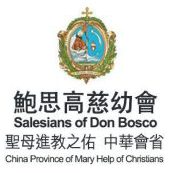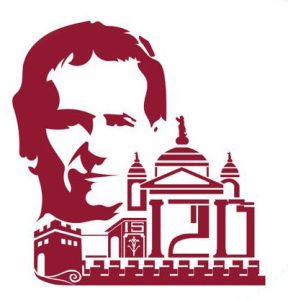慈幼會會士 斐林豐神父記述
【慈幼通訊社 ─ 2020 年 05月 26 日台北聖若望鮑思高天主堂訊】 ─ 台北榮休總主教狄剛(92歲,1989-2004出任台北總主教)在進教之佑瞻禮當日(2020年5月24日)高興地接受了慈幼會亞澳區通訊(AustraLasia news)的採訪。我們在此感謝台北聖若望鮑思高天主堂團體斐林豐神父的幫助。
是怎樣的經驗讓聖若望鮑思高吸引了你?
在中國內地就讀高中時,我在《十九世紀的偉人》認識到鮑思高的生平。(備註:此書原是Ruffillo Uguccioni所著的意大利文書籍 - Un grande italiano(一個偉大的意大利人),由胡安德神父所譯,並取了這美麗的中文書名)看了鮑思高的一生後,他便深深吸引着我。我告訴自己:「這人就是我一生的嚮導。」確實,鮑思高成為了我一生的精神嚮導。之後,我前往宗座傳信大學讀書,入學時校方通知我們:「你要在第一年選好要成為教區神父還是修會神父。若你要成為修會神父,一年級後就要離開在傳信大學住宿,另覓住處。」這前設讓我開始思考自己的司鐸聖召:加入教區還是修會?」最後,我選擇成為教區神父,因為在中國的教區急需神父。不過,我也對自己說:「如果要成為修會神父,我的首選會是鮑思高慈幼會,其次是本篤會。」完成在羅馬的學業後,我因無法返回中國而獲派往德國進修。在德國的每個暑假,我都會找一份慈幼會的工作來練習德文和協助當地的牧民工作。第一年暑假在慈幼會明斯特會省附近的慈幼之家度過。我向省會長說:「我很喜愛鮑思高。這個暑假,可以讓我留在這裡嗎?」善良的他很快便答應了。那裡有很多青年,我看着慈幼會會士給他們講晚訓,更數次獲邀用初學的德文給青年講晚訓。另一個暑假,我在慕尼黑的慈幼會做了同樣的事。由此可見,我與鮑思高的關係從未中斷。
慈幼協進會的聖召對你的牧民生活有甚麼特別意義嗎?
鮑思高神父是位偉大的聖人。他熱愛青年,亦很愛中國。我熱愛鮑思高神父,所以做牧民工作時始終覺得教會人士普遍為青年做得不夠。在台灣亦然,我們為青年做得太少了。在我加入慈幼家庭後,更能看清這一點。我們做得確實不夠,亦有很多外在困難阻礙我們做更多的事。可是,我們不應該被這些困難牽制着。看看基督教,他們面對相同的挑戰,但他們的青年牧民工作比我們更成功。為何會這樣?
你是怎樣開始接觸台北慈幼協進會的呢?
大約八年前,慈幼會省會長聽到我與鮑思高的長久關係後,便問我:「你願意接受我們總會長頒發的慈幼協進會士證書嗎?」我立即回答:「願意!」之後某天,便從總會長查偉思神父手中接過了他頒發的慈幼協進會士證書。以上就是我成為慈幼協進會士的經過。自此以後,我一直很高興可以參與慈幼家庭所有重大活動,例如幾年前在高雄真福山舉行的慈幼協進會中華會省年度會員大會。去年,總會長到台北探訪慈幼事業,我亦非常高興能夠在場。
慈幼協進會的神父可以如何貢獻慈幼家庭呢?
我認為應該邀請全體慈幼家庭的教區神父和主教參與慈幼家庭的所有活動,並要持續實行此事,包括事前早些通知他們,以便教區的神父和主教可以盡可能地出席。當他們出席了,便可以作出一些貢獻。他們總不會長期缺席的,因為我們在接受成為慈幼家庭成員那刻開始,便視之為使命。就我而言,我活躍於普世博愛運動和聖母軍的活動,亦同樣活躍於慈幼家庭的活動。為慈幼家庭的所有教區神父和主教舉辦一個聚會是個不錯的主意。台灣至少有一個教區的堂區主任司鐸和四個主教是慈幼家庭成員,對吧?除了我,還有高雄總主教、台南主教和嘉義主教(兩日前獲教宗委任為新台北總主教)。或許會有神父或主教說他們沒空出席。但當你成為了慈幼家庭的一份子後,我認為這只是推搪的借口。
你對台灣慈幼協進會或慈幼家庭有甚麼期望嗎?
有甚麼期望?我希望能深化台灣神父和教友的神修生活。我覺得現在無論是教區還是修會的神修生活都尚算淺薄,並未夠好。我們未有深切渴望在神修生活中日益成長,只是跟著固有文化緩慢地成長。也許是現今的網絡文化令人著迷而造成此通病。我年輕時在歐洲看到信徒普遍較喜歡修會的神職人員而非教區神職人員,因為他們感覺到修會的神職人員更有熱誠。不幸的是,我覺得現今修會的神職人員「降溫」到與教區神職人員一樣,變得不冷不熱。因此,為何不像普世博愛運動和聖母軍一樣,讓台灣的慈幼家庭為我們的教會生活注入激情和熱誠呢?
備註:我們最近甚少遇到慈幼協進會的教區執事、神父或主教。也許在東亞澳區,台灣地區的經驗是獨特的。可是,在盧華神父的年代(鮑思高首位繼承人,1888-1910)四十萬名慈幼協進會士中,有過百位是教區神父和主教。我們祈求藉此訪談,能開放我們慈幼家庭每一員的眼界和心態。
Interview with Archbishop emeritus of Taipei, Joseph Ti Kang, ASC
By Fr. Lanfranco Fedrigotti, SDB
(ANS – CIN–Taipei – Saint John Bosco Parish, 26 May 2020) –Taipei – Saint John Bosco Parish, 26 May 2020 — On the Feastday of Mary Help of Christians (24 May 2020) Archbishop Joseph Ti-Kang, emeritus of Taipei (92 years old, Archbishop of Taipei: 1989-2004) was happy to respond to few questions for AustraLasia news. We are grateful to Fr. Lanfranco Fedrigotti (Taipei, St. John Bosco Parish community) for his service.
What was your experience that attracted you to Saint John Bosco?
When I was in senior high school in mainland China, I read the life of Don Bosco entitled “A Great Man of the 19th Century“ (NB: A beautiful Chinese translation of Ruffillo Uguccioni’s Un grande italiano by Fr. Andrew Wu An-de). I read it and I was forever attracted by Don Bosco. I told myself: “This man is the guide of my life”. Yes, throughout my life Don Bosco has been my spiritual guide. When I was sent to Rome for studies in the College of Propaganda Fide, as we entered, we were told: “During the first year think clearly whether you want to be a diocesan priest or a religious priest. If you decide to become a religious priest, then, after the first year, you must leave the Propaganda College and find another residence”. This proposition set me thinking about my priestly vocation: diocesan or religious? In the end I opted for the diocesan priestly vocation, because my diocese in China was in dire need of priests. However, I told myself: “Were I to choose to become a religious priest, my first choice would be the Congregation of Don Bosco, my second choice the Benedictines”. After finishing my studies in Rome, it became impossible to return to China. Consequently, I was sent to Germany for further studies. While in Germany, every summer I would look for a Salesian work in which to practice my German and offer some pastoral help. The first summer I spent in a Salesian House near Münster where the Salesian Provincial resided. I told him: “I love Don Bosco very much. Could you take me in for the summer?” The good Provincial readily accepted my request. There were many young people. There I saw the Salesians giving the Good Night talk. I was even asked to give some Good Night talk in my very initial German. I did the same another summer with the Salesians of München. You can see that my relationship with Don Bosco never saw an interruption.
What special flavor the vocation of Salesian Cooperator do you bring to your pastoral life?
Don Bosco is a great saint, a great lover of youth. He also loved China very much. As a lover of Don Bosco, in my pastoral work for my people I have always felt that we Church people in general are not doing enough for the youth. Here in Taiwan, too, I feel that we are doing too little for the young. Now, as a member of the Salesian Family I see this even more clearly. Yes, we are not doing enough. Of course, there are many external difficulties that hinder us from doing more. Yet, the difficulties should not hinder us from doing more. See the Protestants. They face the same external difficulties, but they are much more successful in youth pastoral work than we are. Why?
How did you start your personal involvement with the Salesian Cooperators in Taipei?
Some 8 years ago, the Salesian Provincial, hearing my life-long relationship with Don Bosco, asked me: “Would you like to receive from our Rector Major the Diploma of Salesian Cooperator?” I answered with an immediate “Yes!” So, one day I received this Diploma from the Rector Major Fr Pascual Chávez. That is how I have become a Salesian Cooperator. Since then I have been happy to take part in all major events of the Salesian Family. For example, I was there when the CIN Province of the Salesian Cooperators held its Annual General Meeting on Beatitude Mountain in Kaohsiung some years ago. And last year I was very happy to be present when the Rector Major visited the Salesian work in Taipei.
What might be the contribution of Priest-Salesian Cooperators to the Salesian Family?
I think that diocesan priests and bishops who are members of the Salesian Family should be invited to all the functions of the Salesian Family. This should be done consistently, including notification given sufficiently beforehand, so that, if at all possible, the diocesan priest or bishop may take part. If they are present, they can make some contribution. This is not possible if they are regularly absent. Once we accept to be members of the Salesian Family, we see this as an obligation. For me it is the same with the Focolare Movement and with the Legio Mariae of which I am an active participant. A good thing that could be done is to organize a meeting of all the diocesan priests and bishops who are members of the Salesian Family. In Taiwan there is at least one diocesan parish priest and four bishops who are members of the Salesian Family, right? Besides me, there are: Archbishop of Kaohsiung, Bishop of Tainan and Bishop of Chiayi (two days ago appointed by the Pope as new Archbishop of Taipei). Perhaps some priests or bishops will say that they are too busy. I think this is not a valid reason for not joining meetings, once you have accepted the membership in the Salesian Family.
Any dreams or hopes about the Salesian Cooperators or Salesian Family in Taiwan?
What hope? My hope is that the spiritual life of both priests and religious in Taiwan be deepened. At present, I think it is too superficial. Really, in spiritual life we, whether diocesan or religious, are not up to the mark. There is no clear and deep desire to grow day by day in the spiritual life. We are just jogging along with our mediocre routine. Today’s digital culture with all its fascinations may be a reason for this general defect. As a young man in Europe, I witnessed how the faithful in general liked religious clergy more than diocesan clergy. The reason was that religious clergy appeared to them as more fervent than diocesan clergy. Now, I think that, unfortunately, also religious clergy has come down to our level of lukewarm diocesan clergy. So, why should not the Salesian Family in Taiwan inject fire and fervour in our Church life, just as the Focolare Movement and the Legio Mariae are trying to do?
NB – Recently we have not met many diocesan Deacons-Priests-Bishops who are Salesian Cooperators. Probably in the EAO region the Taiwan experience is unique. However in the times of Don Rua (first successor of Don Bosco, 1888-1910) among the almost 400,000 members of the Salesian Cooperators Association were hundreds of secular clergy and bishops. We pray this interview will open our vision and mindset.


